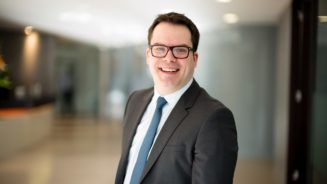The company launched the Alquity Africa Fund, a Luxembourg-domiciled Sicav, in June 2010, so far raising more than $50m (half of which entered the fund in the past 12 months) and returning 9.4% to 18 December. This year alones it is up more than 15%.
However, the company now wants to take its approach to other markets, specifically to Asia (ex Japan), the Indian sub-continent and Latin America.
In view of this, Alquity has appointed Roberto Lampl as head of Latin America investments.
Lampl joins from Baring Asset Management where he spent three years in roles including portfolio manager and head of emerging markets equity funds and head of Latin America equity. Prior to this, he was a senior investment manager at ING Investment Management and managed the ING L Invest Latin America Equity Fund, as well being a co-portfolio manager of several other funds.
Alquity chief executive, Paul Robinson, said, having successfully proven the strategy in Africa, the company now wants to replicate the model elsewhere. He added that often, particularly in areas like Latin America or Asia, potential investors were keen to see a similar strategy in their domestic markets where there were similar social and economic problems to Africa.
There are three “pillars” to the company’s investment strategy.
First, Alquity aims to produce attractive returns through investing in high opportunity frontier markets.
Second, the fund manager, which in the case of the existing Africa fund is David McIlroy, will employ an environmental, social and governance screen over potential stocks. Robinson points out that this is not necessarily through a moral obligation, but because “doing things the right way gets you better returns”.
Third, Alquity donates 25% of its fee revenue to microfinance projects under its “transforming lives” programme. Robinson said in Africa, this programme has helped around 8,000 people.
“Alquity started with a vision that you could do things in a different way, that you could invest in a way which gave people great returns but at the same time could really build up those economies that we’re investing in which is in all our interests,” said Robinson.
“Those people who want to see capitalism as a force for good, there is a way to do it and what I think now, three and a half years in, is that we are proving that. We have delivered better returns than our competitors, we’ve done it by supporting companies that operate in the right way and we’ve changed thousands of people’s lives. Now we are going to broaden it out and offer it to other regions as well.”




